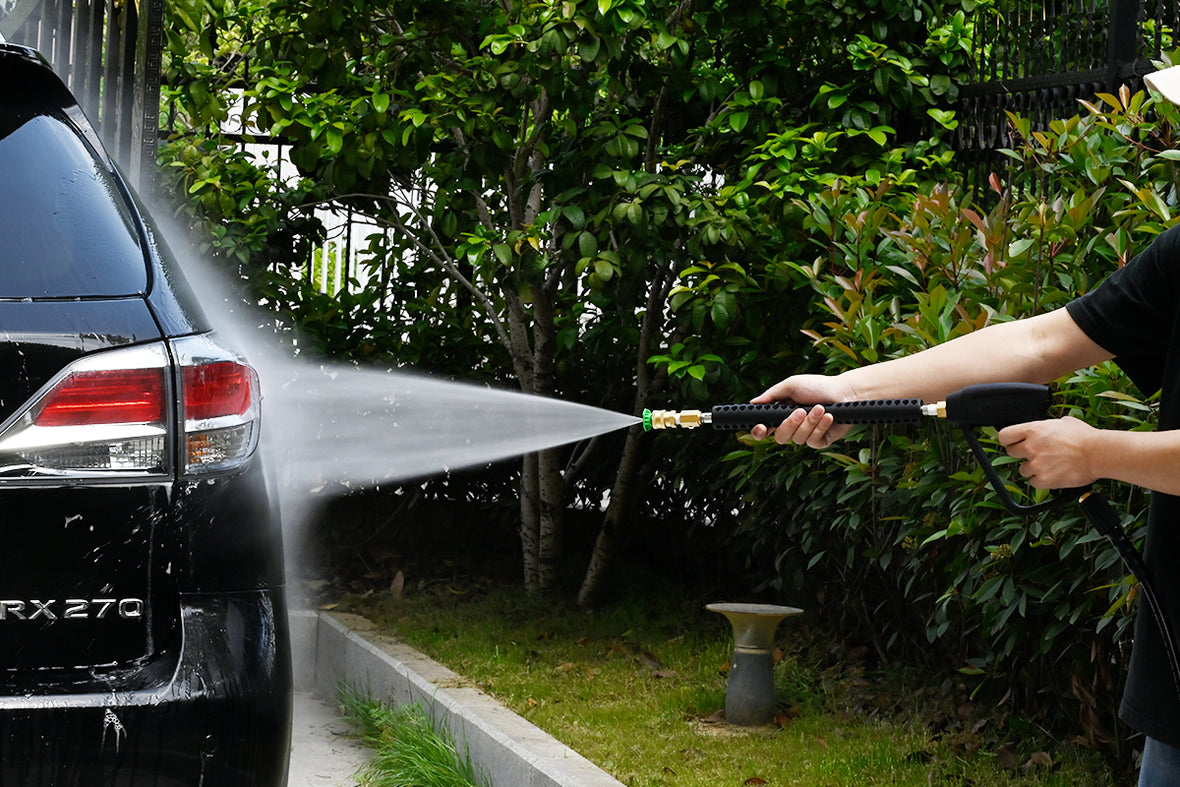
PSI vs. GPM: What Matters Most?
When choosing a pressure washer, it's essential to understand the difference between PSI (Pounds per Square Inch) and GPM (Gallons per Minute) and how they affect performance. Here’s a breakdown of what matters most:
1. PSI (Pounds per Square Inch)
- Definition: PSI measures the pressure or force of the water stream. Higher PSI means the water is delivered with more force.
- Importance: Higher PSI is crucial for tackling tough stains and heavy-duty cleaning tasks. It’s ideal for removing stubborn dirt, grime, and paint.
2. GPM (Gallons per Minute)
- Definition: GPM measures the volume of water delivered by the pressure washer. Higher GPM means more water is used.
- Importance: Higher GPM increases the rinsing capability and speeds up the cleaning process. It helps in washing away dirt and debris more efficiently.
Comparing Cleaning Units (CU)
Cleaning Units (CU) are calculated by multiplying PSI by GPM (CU = PSI × GPM). CU provides a measure of overall cleaning power, but it’s essential to consider both PSI and GPM to understand how a pressure washer will perform.
Example:
-
Pressure Washer A: 3000 PSI × 2.0 GPM = 6000 CU
- Better for jobs requiring strong pressure but slower rinsing.
-
Pressure Washer B: 2000 PSI × 3.0 GPM = 6000 CU
- Faster cleaning with more water flow, ideal for rinsing and large areas.
Conclusion:
- For Tough Stains: Higher PSI is more critical.
- For Faster Cleaning: Higher GPM is more beneficial.


